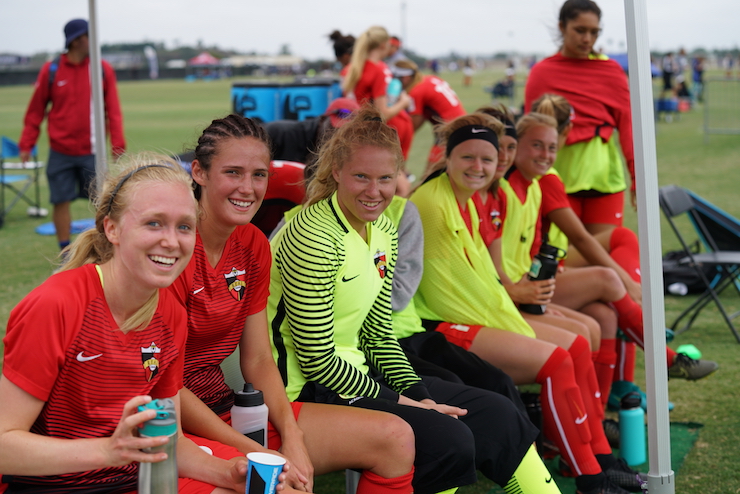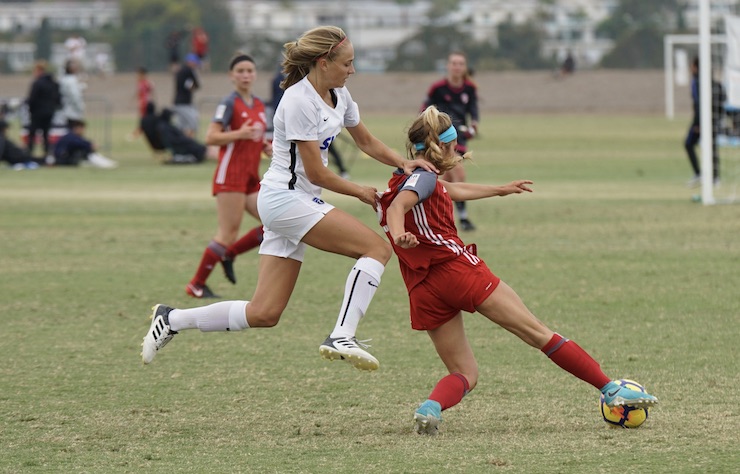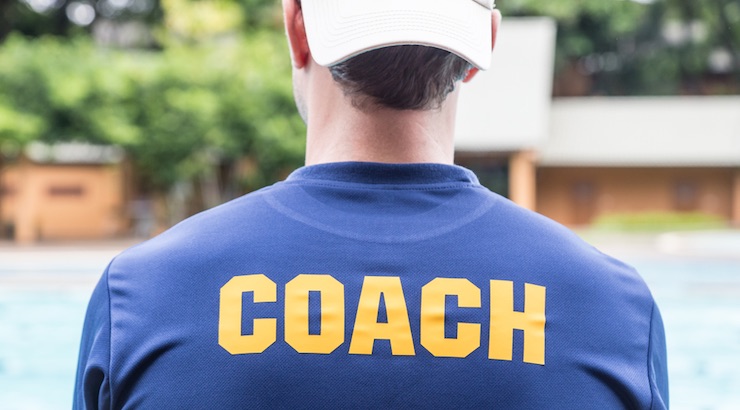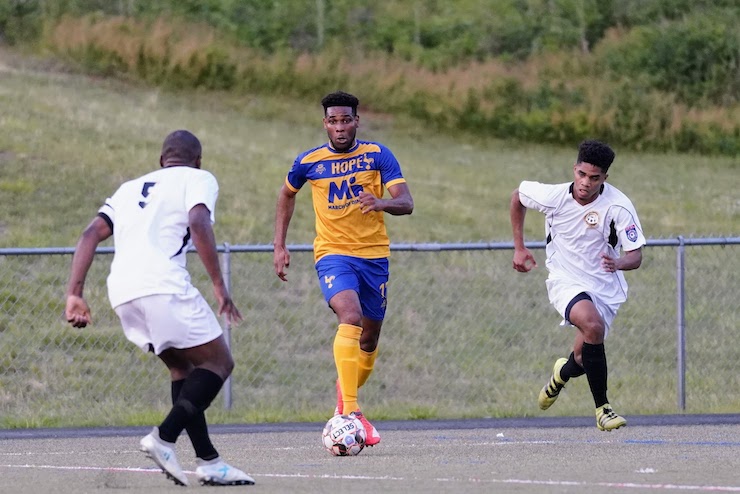A Conversation on Youth Soccer. The controversies, what needs to be changed and what is working.
U.S. Soccer 2019 AGM has just concluded and yet the world of youth soccer still seems fragmented. Few people have devoted as much energy to unify the world of youth soccer for the good of the game as Tim Turney, the man from Kentucky whose leadership is helping create the foundation for the future.
SoccerToday’s Diane Scavuzzo’s interview with Tim Turney, Vice Chair for U.S. Youth Soccer, and a member of the U.S. Soccer Federation Board of Directors gives rare insight to the wide range of issues facing the world of youth soccer today.
From the controversy over DA players not playing high school soccer to the disparity in costs for playing at all, Turney speaks out and shares his convictions on what is right and what is wrong today in soccer.

Diane Scavuzzo: Over the past year plus, there has been controversy over the U.S. Soccer Development Academy not allowing their DA players to play high school soccer – unless a scholarship is at stake, for example.
Do you think this policy is having a negative impact on youth soccer?
Tim Turney: No, I don’t believe so.
Diane Scavuzzo: Why? There are many proponents in favor of high school soccer who believe teenagers are missing out not playing for their communities.
Tim Turney: The DA is a different level of soccer, it’s a different commitment.
When you reach the level of the DA, you have to have a clear commitment to developing your talents. These are the youth soccer players who want to push towards the dream of a career in the game – and those players who that have a shot at maybe making a National team, or playing at a Division I college.
These players are choosing a commitment that is a little bit higher than high school.

Please understand, I think high school soccer is great, but to me, it’s more of a social thing.
If you compare the environment within high school and the environment within the DA, it’s two totally different environments in which to play soccer.
One is very focused on skill, strategy, tactics and player development … at the DA level, players are just at a very high level whereas at a high school, although it can be good soccer and will vary in parts of the country, it’s not as good.
Diane Scavuzzo: So do you think that the DA is protecting its players? Trying to keep them in the same consistent environment by restricting them from playing high school?
Tim Turney: Well, I think if you go back and look at rules you will see that high school restrict their athletes much more so than the DA does.

Diane Scavuzzo: How does high school soccer restrict its players?
Tim Turney: If you’re playing high school soccer, or any high school sport, in most states, you’re not allowed to play anything else during that season. That’s a significant restriction.
Diane Scavuzzo: So high schools are really they’re the ones who are the first ones dictating that players can’t participate in anything else. So, why do you think so many adults are in an uproar?
Tim Turney: Let me ask you a question.
If you were a standout scholar in high school and taking AP and Honors courses and receiving college credit for your classes and a teacher came to you and said, “You need to sit in an average class and not push yourself that hard.”
How would you feel?
Personally, I think high school does so much for a person’s self-esteem. To walk into a school and have people say, “Hey, great game” and enjoy all the comradery is invaluable.
But, everybody has to make their own choice.

For elite players, the top players in our country, the DA program makes sense. Out of the millions of kids attending high school, we are talking about a very small percentage of players who have chosen to play DA and not play for their high schools.
If you are an elite soccer player playing high school soccer, you can be putting your career at risk, because not everyone has that same level of commitment. The environment that you train in is simply not as good as it would be at the DA.
Diane Scavuzzo: Let’s talk about player safety. What do you think about a requirement to make sure that every coach has a background check?
Tim Turney: I think it’s unbelievably important. Even if all these background checks stop only one child from being injured in any way, it’s well worth it.
Alongside background checks, what is important is training people on signs to look for. Safe Sport training is excellent and it provides clear guidelines on what to look for.
I believe people need to take more responsibility.
It amazes me everything a teacher goes through to be a teacher in the USA and yet somebody can walk out on a soccer field and say they’re a coach and in some parts of the country nobody questions it at all.

Diane Scavuzzo: When will US Youth Soccer mandate that all coaches coaching in US Youth Soccer states have had a background check?
Tim Turney: My hope is soon. That is our goal.
We are still examining the type of background checks. Should it be a federal background check? A state background check? How deep a background check needs to be done?
Diane Scavuzzo: I know some states require their coaches to have background checks, such as Cal South and Cal North.
Tim Turney: Yes. and in Kentucky, we started many years ago and we did every employee and every coach.
Diane Scavuzzo: What is the greatest challenge that US Soccer faces today?
Tim Turney: Before we were awarded the World Cup in 2026, it was the quest to host it. Now, it is uniting everybody and getting all the stakeholders on the same page.
Youth soccer is still fractured.
We need to figure out a way that every organization can still maintain their individual identity and all play together. We all play the same game.
We should all focus on what’s in the best interest of the child. What’s best for the child, what’s best for the game, and then what’s best for the organization, depending on which one you’re with. And if when we can do that, I think we’ll all be better off.

Diane Scavuzzo: There are a lot of controversial issues in soccer today. For example, what do you think about promotion and relegation?
Tim Turney: Personally, I think promotion and relegation in the MLS would be very disruptive at this point because we didn’t start with it. It would be very difficult to ask the level of money from the owners if there was a chance that they could be relegated down. Especially for a new expansion team.
In the lower divisions, I think promotion and relegation could work, as long as they’re being set up that way from the beginning.
I like the concept abroad, but I don’t know how it would work in this country.

Diane Scavuzzo: What do you think is the greatest challenge for US Youth Soccer?
Tim Turney: Redefining who we are and getting the costs of youth soccer under control.
For the longest time, our job was to make soccer available at any level to anyone who wants to play. We’re, as they say, the game for all kids.
I think one of the biggest challenges is we, as a nation, are so diverse.
From Southern California to the Midwest and as far as New York, everybody’s got really different ideas and charges different fees for youth soccer.
We need to fix the inconsistencies on what we ask parents to pay at the many levels of the game. There is a big difference, of course, between an elite athlete that’s in a national league and a ten-year-old recreational player who just wants to go out and play with the soccer ball but I am referring to the vast range within those levels.

Diane Scavuzzo: Is there a big difference in recreational costs for youth soccer?
Tim Turney: Recreational costs in most places is very, very expensive. Across the country, recreational youth soccer fees can range from $5 to $150 and higher.
Usually, recreational players in rural areas just get a T-shirt and some clubs may charge $20 per child. And often, a business in the community will sponsor the team so the parents have no fees to pay but in other parts of the USA, recreational soccer can be priced out of reach for many parents and kids are missing out. That should not happen.
There is a big range of club costs in the elite market as well.
Competitive soccer players at the big clubs can pay anywhere from $1,000 to $6,000 per season, which is extremely high – then add on the travel costs to watch your child play travel soccer in games and tournaments. In some areas, we are pricing the game out of reach.





